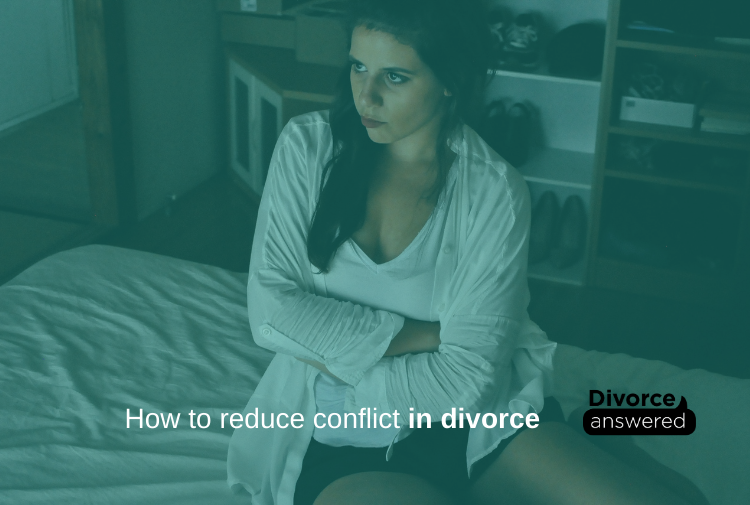
UNDERSTAND THE BASIS OF CONFLICT AND 8 WAYS THAT CAN HELP ALLEVIATE DISAGREEMENTS THROUGH SEPARATION
How to reduce conflict in divorce. Conflict almost seems inevitable in separation. I have always sprouted that generally your relationship with your ex -spouse may be alright from the break-up; then something changes and conflict can creep in.
However, the basis of all conflict is a disagreement, differences or incompatibility to the degree that you unable to accept or tolerate. The reasons for conflict can be vast, from jealousy after your ex-spouse moves in faster than you, financial strain or control, perceived improved lifestyle after break-up. Ultimately, conflict occurs to control, hurt and upset the other person.
Here are 8 different ways that you can address to help reduce conflict in divorce:
1. Only worry about you Let me share a tip with you, if you stay inside your lane and only worry about you, then your life will be easier.
2. Create boundaries that you are comfortable with The boundaries that you establish may not be the same boundaries another person sets for themselves. Understanding that every situation is different, you can create boundaries in relation to physical distance and access to your home, communication, socially (with common friends and on social media), emotionally (understanding triggers, finding acceptance or forgiveness) and getting support to protect your emotional wellbeing can be very helpful) and mentally (by having a clear vision, goals and an understanding of the process).
3. Communicate with care The way that you communicate can incite a reaction from your ex-spouse. If not always, avoid using judgment, name-calling and being emotional. Try to remain factual, short and to the point.
4. Establish Professional distance Often in high conflict divorce, having a lawyer represent you can create some professional distance. Your ex-spouse won’t need to liaise directly with you regarding settlements.
5. Mediate Professional mediation can help you and your ex-spouse hear what each other’s needs are and help to narrow the field of differences and understandings.
6. Create orders Negotiating is tough especially when you are in conflict and not liking each other very much. However, when you have orders around your parenting and financial matters, you will have certainly, structure and understand your responsibilities.
7. Block the battle It’s difficult to fight with another’s person when they don’t fight back. Fighting and conflict is a two-way street - it involves two people engaging; one ‘poking’ and the other reacting. Make a conscious decision not to react when you are provoked and do your best to restrain from pushing your ex-spouse’s buttons.
8. Leave others out Sometime in conflict when one person tries to fight and there isn’t any response, they will turn to others to hurt so that it can hurt you. This may mean lashing out at your friends and family or turning your friends and family against you. Worse still, some people take it a step further and take their frustrations out on the children or turn the children against their other parent.
Sadly, conflict is bound to happen after break-up. What you do and how you choose to respond is entirely up to you. You can choose to take the high road by limiting your interactions with your ex-spouse and act with grace or you can choose to appear controlling, antagonistic and make the separation process particularly harder than it needs to be.
For personalised support and guidance, book a Strategy Session today.
Related articles:
How a Parenting Plan Facilitator can help you reach agreement